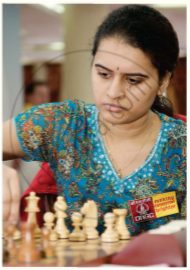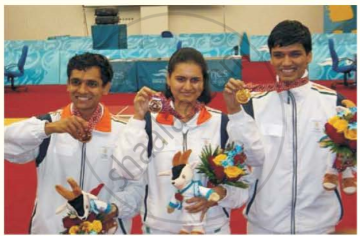Advertisements
Advertisements
प्रश्न
We will ponder your proposition and when we decide we will let you know. But should we accept it, I here and now make this condition that we will not be denied the privilege without molestation of visiting at any time the tombs of our ancestors, friends, and children. Every part of this soil is sacred in the estimation of my people. Every hillside, every valley, every plain and grove, has been hallowed by some sad or happy event in days long vanished. Even the rocks, which seem to be dumb and dead as the swelter in the sun along the silent shore, thrill with memories of stirring events connected with the lives of my people, and the very dust upon which you now stand responds more lovingly to their footsteps than yours, because it is rich with the blood of our ancestors, and our bare feet are conscious of the sympathetic touch. Our departed braves, fond mothers, glad, happy hearted maidens, and even the little children who lived here and rejoiced here for a brief season, will love these somber solitudes and at eventide they greet shadowy returning spirits. And when the last Red Man shall have perished, and the memory of my tribe shall have become a myth among the White Men, these shores will swarm with the invisible dead of my tribe^ and when your children’s children think themselves alone in the field, the store, the shop, upon the highway, or in the silence of the pathless woods, they will not be alone. In all the earth there is no place dedicated to solitude. At night when the streets of your cities and villages are silent and you think them deserted, they will throng with the returning hosts’that once filled them and still lover this beautiful land. The White Man will never be alone.
Let him be just and deal kindly with my people, for the dead are not powerless. Dead, did I say? There is no death, only a change of worlds.
Read the extract given below and answer the question that follow.
How is every part of the soil sacred to his people?
उत्तर
Every part of the soil is sacred to his people because every hillside, every valley, every plain and grove, has been hallowed by some sad or happy event in days long gone by. Even the rocks, which are now dumb and dead are connected with memories of events from the lives of his people, and the very dust upon which they stand responds lovingly to their footsteps because it is rich with the blood of their ancestors, and their bare feet are conscious of the sympathetic touch
APPEARS IN
संबंधित प्रश्न
As you know, from the previous lesson you have just read, there are people in our country who have traditional knowledge about snakes, who even catch poisonous snakes with practically bare hands. Can you find out something more about them?
Avik, a correspondent for his school magazine, interviews Grandmaster Koneru Bumpy. Let us read :
INTERVIEW WITH KONERU BUMPY
Avik : Good morning, Ma'am! Congratulations on your achievements in the World Grand Prix Women's Chess Championship in Istanbul recently!

Koneru Humpy : Thank you! This is my biggest win in the women's circuit. This is very significant, considering that it has come in an event which had three former world champions.
Avik : Indeed! Please tell us something about yourself, Ma' am!
Koneru Humpy : I was born in Gudivada, near Vijaywada, in Andhra Pradesh on March 31, 1987. I was originally named 'Humpi' {which means champion) by my father Mr Koneru Ashok, who later changed the spelling to Humpy, to give the nrune a Russian flavour. I write my family name , Koneru, before my given name, as is the convention with the Telugu speaking people. I started playing chess when I was 5 years old.
Avik : Who introduced you to the game?
Koneru Humpy : My father acquainted me with the game. He is also my first coach. I first showed interest at the age of 6 years, when I watched him play a game and suggested a move. Indeed it was the move that actually got me into the game.
Avik : Your father left his teaching profession to make you a champion !
Koneru Bumpy : Yes, when I took the 4th place in the Indian Under 8 Championship in 1995, he decided to leave his career and dedicate his time to me.
Avik : And you had won four World Championship at a very early stage.
Koneru Bumpy : Yes, the World Girl Under 10, the World Girls Under 12, the World Girls Under 14 and World Girls Junior Chrunpionships. I acquired my IM title in 1999 and in May 2002, I achieved my 3rd GM Norms in Elekes Memorial Grandmaster Tournrunent in Budapest.
Avik : You held the record from 2002 to 2008 for the youngest woman ever to become a grandmaster!
Koneru Bumpy : Yes, I achieved it at the age of 15 years, 1 month, 27 days, beating Judit Polgar's previous record by 3 months; which was later lost in the Women's World Chess Championship in 2008 to Hou Yifan. I won the World Junior Girls Chess Championship in 2001 and won the edition or North Urals Cup, the Women's Super Tournrunent held in Krasnoturinsk. In 2006, I participated in the Women's World Chess Chrunpionship, but my crunpaign had to end early in the second round. I played in the first board of Monte Carlo Chess Club and won the last two editions of the European Club Cup.
Avik : You have got some awards also !
Koneru Humpy : Yes, Arjuna Award in 2003, Padmashri Award in 2007 and Raja-Lakshmi Award in 2008.

Avik : In India, many young chess players are ready to take a break in education and are fully focussed on chess preparations. What are your views?
Koneru Humpy : I don't think that taking up chess as a career and completely neglecting studies will be necessary at an earlier stage. After getting to a certain level in the game, they themselves should decide their preferences i.e. whether to play seriously or not.
Avik : What advice would you offer to parents of enthusiastic and talented chess children?
Koneru Humpy : Parents should not compel children to play chess. If children are genuinely interested in the game, they should encourage them. But they shouldn't hurry to get results.

Avik : How often do you exercise? Do you think daily physical exercise can help a chess player to cope with the pressure and increase the brain's ability to concentrate?

Koneru Humpy : I spend around one hour per day on physical exercise. Exercise is a must for every chess player. As the proverb says, 'a sound mind in a sound body'. Exercise shows a lot of impact on the brain.
Avik : Thank you for talking to me and giving valuable advice.
Koneru Humpy : Thank you.
It matters little where we pass the remnant of our days. They will not be many. The Indian’s night promises to be dark. Not a single star of hope hovers above his horizon. Sad-voiced winds moan in the distance. Grim fate seems to be on the Red Man’s trail, and wherever he will hear the approaching footsteps of his fell destroyer and prepare stolidly to meet his doom, as does the wounded doe that hears the approaching footsteps of the hunter.
A few more moons, a few more winters, and not one of the descendants of the mighty hosts that once moved over this broad land or lived in happy homes, protected by the Great Spirit, will remain to mourn over the graves of a people once more powerful and hopeful than yours. But why should I mourn at the untimely fate of my people? Tribe follows tribe, and nation follows nation, like the waves of the sea. It is the order of nature, and regret is useless. Your time of decay may be distant, but it will surely come, for even the White Man whose God walked and talked with him as a friend to friend, cannot be exempt from the common destiny. We may be brothers after all. We will see.
Read the extract given below and answer the question that follows.
How does the speaker differentiate his tribal people from the white people?
Notice how in a comic book, there are no speech marks when characters talk. Instead what they say is put in a speech ‘bubble’. However, if we wish to repeat or ‘report’ what they say, we must put it into reported speech.
Change the following sentences in the story to reported speech. The first one has been done for you.
I want to see the king.
Gopal told the guards_________________
How was the tiger cub fed?
Why did Vijay Singh ask the ghost to accompany him to town next day?
What kind of surprise could be found while walking on the grass?
When did the banyan tree become a noisy place?
Write appropriate question words in the blank spaces in the following dialogue.
Neha: ______ did you get this book?
Sheela: Yesterday morning.
Neha: ______ is your sister crying?
Sheela : Because she has lost her doll.
Neha: ______ room is this, yours or hers?
Sheela: It’s ours
Neha: ______ do you go to school?
Sheela: We walk to the school. It is nearby.
Read the following extract from Jesse Owens's short story, ‘My Greatest Olympic Prize’ and answer the question that follows:
| I wasn't too worried about all this. I'd trained, sweated and disciplined myself for six years with the Games in mind. While I was going over on the boat, all I could think about was taking home one or two of those gold medals. I had my eye especially on the running broad jump. |
- What does Owens mean by 'all this'? What games does he refer to? [3]
- What made Owens confident of winning a gold medal or two? [3]
-
What was the ‘surprise’ that Hitler had kept hidden from the world?
How did Owens feel when he came face to face with the ‘surprise’? [3] - Describe Owens’ performance in the broad jump trials.
What doubts filled his mind at this time? [3] - What makes Luz Long’s behaviour at the ‘Games’ truly remarkable in the context of the times?
Identify a theme that is common to the short story ‘My Greatest Olympic Prize and the poem ‘Nine Gold Medals’. [4]
